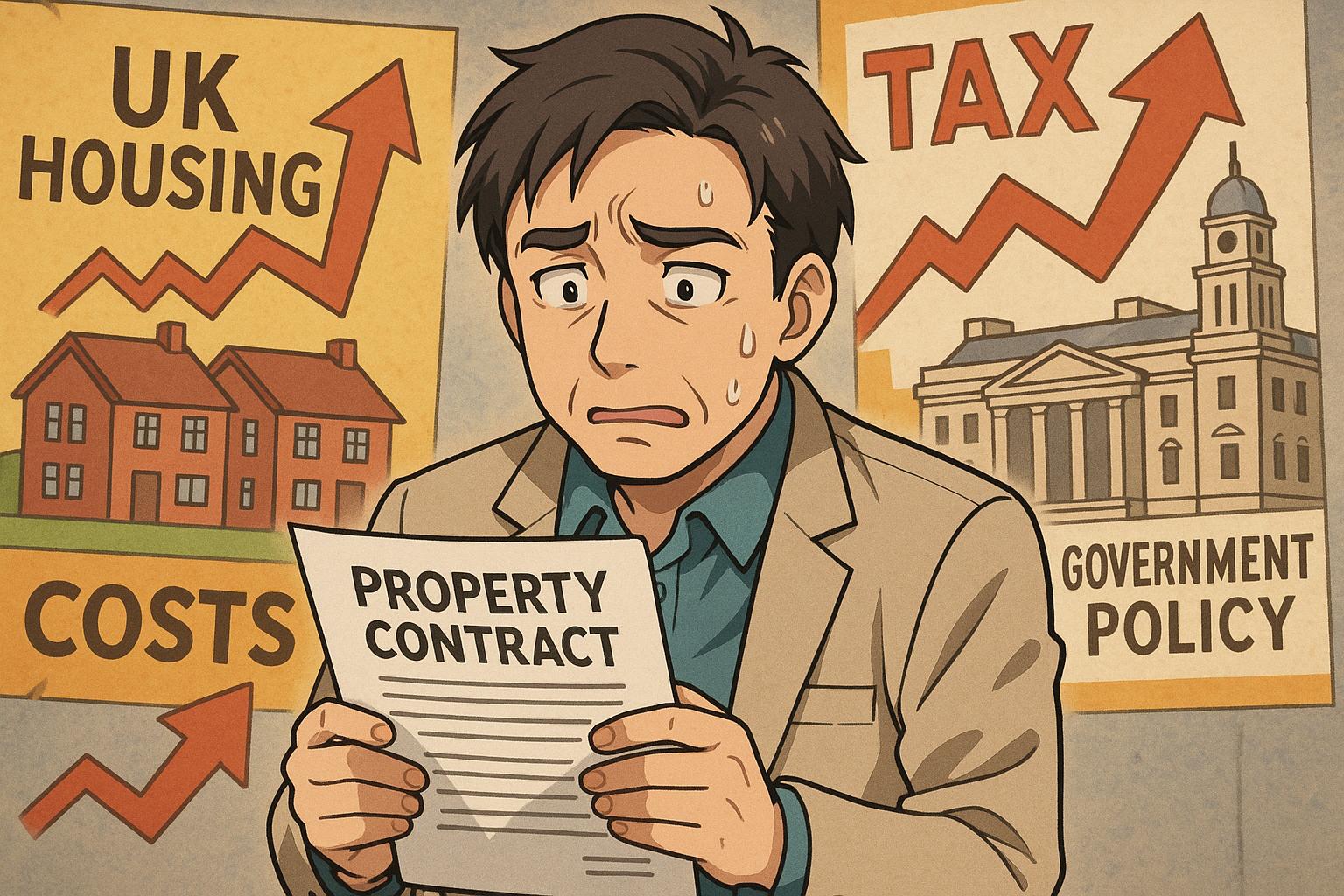Landlords in the UK are expressing increasing concern over what they perceive as detrimental government policies, particularly from the Labour Party, which they feel are discouraging investment in the private rented sector. This sentiment is underscored by a recent survey conducted by Pegasus Insight on behalf of the National Residential Landlords Association (NRLA), revealing that over half of the respondents are worried about escalating costs associated with Energy Performance Certificate (EPC) upgrades, the implications of the Renters’ Rights Bill, and potential increases in Capital Gains Tax (CGT).
The NRLA's findings reflect a growing anxiety among landlords about the regulatory environment. Some 80% of landlords indicated that they are troubled by the rumoured rise in CGT for second homes and buy-to-let properties. Currently, property investors who realise gains from selling rental properties face CGT rates of 18% or 24%, depending on their income level. The suggestion that these rates may align more closely with personal income tax could push them to 20% and 40%, a significant increase that many landlords find worrisome.
Further heightening concern, Labour’s proposed Renters’ Rights Bill is seen as a potential threat to profitability, with 50% of landlords expressing apprehension. Additionally, costs associated with upgrading properties to meet the minimum EPC rating of C by 2030 are expected to escalate dramatically. Estimates for these upgrades range from £6,100 to £15,000 per property, a financial burden that many landlords feel unsure they can manage, particularly in light of ongoing economic pressures.
The economic backdrop for landlords remains challenging due to rising costs and tightening regulations. Increased stamp duty and the loss of higher-rate tax relief on mortgage interest have already made buy-to-let investments less appealing. The urgency for landlords to take protective measures is leading to a surge in property sales, as many aim to offload assets before any proposed tax increases take effect following the upcoming Budget.
Ben Beadle, Chief Executive of the NRLA, highlighted the rising fragility of investor confidence, stating that government policies are fostering a sense of unease among property owners. "These figures lay bare the fragility of investor confidence," Beadle said, emphasising the necessity for the government to reconsider its approach. He insisted that unless the government adopts pro-growth measures, the current trajectory could exacerbate market instability and deter investment not only in the private rented sector but in housing overall.
Interestingly, despite the current low investor confidence, previous trends have shown a relative uptick in buy-to-let property sales, reportedly increasing by 34% over the past six years. This surge can be partly attributed to financial and regulatory pressures driving landlords to act sooner rather than later. The urgency to navigate tax implications or changes to rental regulations has led many property owners to re-evaluate their portfolios and consider an exit strategy.
In a broader context, expectations around property market regulations, such as the reintroduction of energy efficiency targets, are causing further unease. Some analyses suggest that the financial burden of meeting these standards may not only outweigh the benefits but could also reduce the overall value of the properties. With improvements from a G rating to a C potentially costing around £27,000, landlords are questioning the financial viability of future investments, particularly when there are no guarantees of a corresponding increase in property value.
The heightened fears surrounding Labour’s approach to housing policy have solidified a narrative among landlords that the government is increasingly anti-investment. Such sentiments, if left unaddressed, may not only disrupt the rental market but could also impact first-time buyers and renters seeking affordable housing options. Therefore, it is imperative for policymakers to listen to the concerns of property investors, alongside the need to ensure affordable, quality housing for tenants, creating balanced regulations that foster a sustainable housing market for all stakeholders involved.
Reference Map
- Paragraph 1, 2, 8
- Paragraph 5
- Paragraph 6
- Paragraph 4
- Paragraph 7
- Paragraph 3
- Paragraph 3, 8
Source: Noah Wire Services
